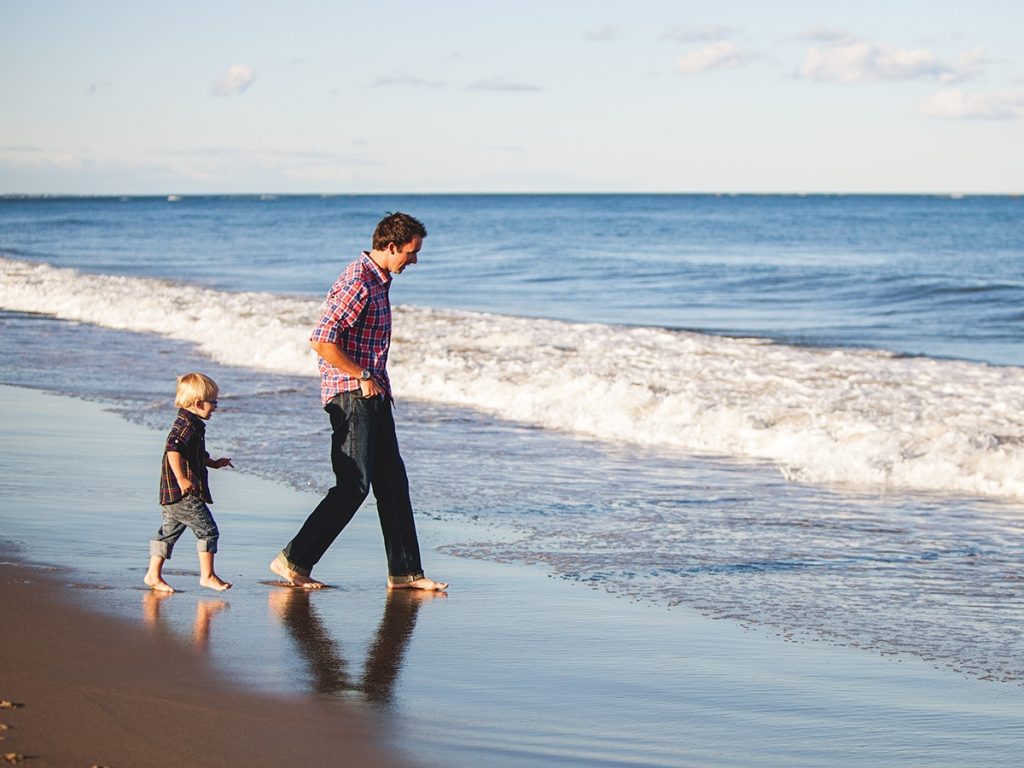I recall my daughter’s distressed toddler voice from the car seat behind me, “Seatbelt, Mommy!” After dozens of intentional reminders to her that we ALWAYS buckle our seatbelts, I admit I earned the reprimand by modeling the wrong behavior. I also admit I appreciated it when my teens with new driver’s licenses took that habit to heart and consistently remembered their safety belts.
It is not surprising that a study by the Airbag Safety Campaign in 10 states confirmed that when parents buckled up, kids did, too. The good news—and the bad news—is that we are the primary examples for our children. It’s cute when our little fellas slather up to shave with Dad and we can hardly be mad at our little gals when we find a tube of lipstick smeared all over their faces. Instinctively though, we know that “monkey see, monkey do” applies to more than just the sweet moments of life. Our children also live in close proximity with our greatest stressors and our most critical conflicts.
Necessary Struggle
By now, our young adults watching us as a primary example of what it looks like to navigate life as a grown up. The reality is, cute has its limits. Bigger kids face bigger problems. Crises, disappointments, and accidents do happen. Our students need to be equipped with skills, not just seatbelts. Will their responses to adult hardships reflect our intentionality in modeling those skills or our attempts to protect them from tough experiences?
Christy Fitzwater, author of Blameless: Living a Life Free from Guilt and Shame, describes her experience when her young adult son encountered bonafide hardship and she felt challenged to shift her pity-for-his-pain attitude to a buck-up-he-needs-this conviction. “But what’s a mom to do?” she said. “I’ve been protecting this child since he came out of the womb…. I cut his grapes and hot dogs in half so he wouldn’t choke. I taught him not to chase a ball into the street…. For so many years it was my job to make sure he was safe. And now I’m supposed to step back and let the hard days come?” Illustrating her point, she tells about her daughter starting to play competitive soccer. Christy says, “For years we had been telling her to be kind to others and share her toys. Then we found ourselves screaming, Get the ball! Don’t let him have it! How do we make such a big change in parenting?”
Good question. There is something rewarding about protecting young kids. We shelter them from illness. We stand up to the bullies in their lives. We are on their side. As their protectors and defenders, we are practically superheroes. It strikes me that revealing our own struggles is like admitting we are more like Clark Kent and less like Superman. It is hard to give up our early parenting hero status. But at some point, part of modeling being an adult becomes modeling being human.
My son tells me his generation was “duped” into thinking that they were the superheroes. They were told they could be and do anything they wanted. Except that they can’t. Real lives include real potential and real limitations. Real parents have experienced both. We’re pretty darn good at capitalizing on our successes with our families but can we appropriately share our challenges as well? We’ve done what we could to train our kids in good habits but have we hardwired our young adults’ skills for wrestling hardship? Fighting off their “Lex Luthors” will require more from our students than courage. It requires strategy and the training ground might just be what’s already happening at home rather than in their classes. It’s not hard to think of examples.
Loss
When, in a year’s time, I lost one parent to death and transitioned a second to hospice, I became acutely aware that my approach to my mom’s dependence on me is a living classroom on navigating loss. Last month, my son took four days away from school to serve his Grammy as we closed up her apartment and helped her adjust to her new, one-room home in long-term care.
Finances
When I was laid off, I didn’t feel much like a hero, but deliberately sharing financial needs with my young adults helped them see how God provided when my income disappeared. Due to restructuring, it’s now my daughter’s turn to wrestle with job loss. I’m pretty sure she didn’t take a college class in how to navigate that hurdle but I am witnessing a trust in God’s provision she may have learned during my unemployment.
The Unexpected
When the massive melt from our April blizzard decided to relocate in my basement, my son naturally became my mopping partner. Working together in the wee hours of the morning gave us a chance to practice counting our blessings instead of complaining about aching backs and lack of sleep.
If we want our students to learn conflict resolution, or endurance, or crisis management, I bet we each have many experiences we can find appropriate ways to share. If we deliberately shield our students from our hardships instead of intentionally and appropriately sharing our struggles, have we done all we could to equip them for their own journey in reality? Over time, we can wean ourselves from the protector role and invite the transition to partner on the journey until they are ready to fight their own battles, resolve relational differences, endure the floods, and of course, drive their own car–with their seatbelt on, of course!

